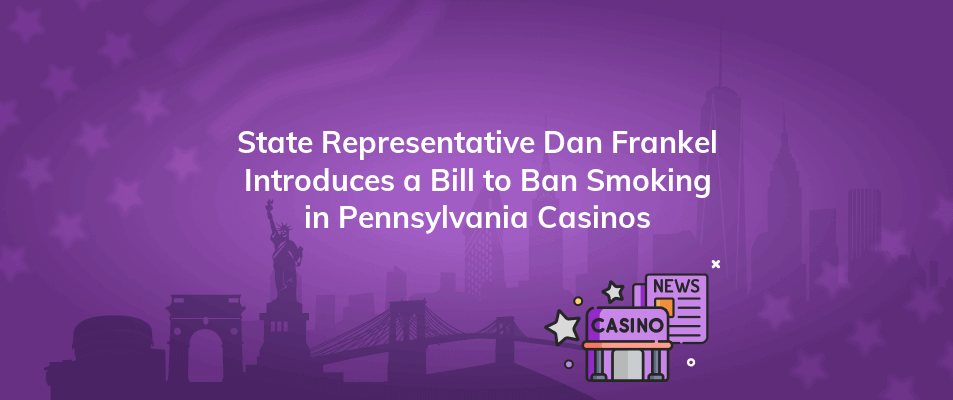State Representative Dan Frankel Introduces a Bill to Ban Smoking in Pennsylvania Casinos

 1.3K
1.3K

Over the last several years, there has been debate over smoking in PA land-based casinos. Following the introduction of the Protecting Workers from Secondhand Smoke Act by Democratic Representative Dan Frankel of Allegheny County, those times may be drawing to a close.
The legislation would essentially ban smoking at Pennsylvania’s casinos and other establishments exempt from the Clean Indoor Air Act of 2008.
When the state and several counties additionally imposed mask requirements during the COVID-19 epidemic, the majority of casino visitors were granted a respite from smoking. When those restrictions were repealed, most casinos resumed allowing smoking inside.
The Smoking Ban Proposed by Rep. Frankel Will Apply to Pennsylvania Casinos
The Clean Indoor Air Act of 2008’s flaws will be rectified by the Protecting Workers from Secondhand Smoke Act, also known as House Bill 1657. Other venues that are impacted in addition to Pennsylvania casinos include home daycare facilities, hotels, private clubs, Veterans of Foreign Wars (VFW) pubs, and bars where food accounts for less than 15% of revenue.
The Pennsylvania Coalition, comprised of health professionals and campaigners from the American Lung Association, American Heart Association, American Cancer Society Cancer Action Network, and Campaign for Tobacco-Free Kids, thanked Representative Frankel for his unwavering dedication to ending indoor smoking in public places and defending workers from the potentially fatal risks of secondhand smoke.
According to the research, casinos without indoor smoking not only promote better health but also enjoy greater performance since they appeal to the large majority of prospective customers who want a smoke-free setting. To remove the casino smoking loophole, state legislators around the nation are exploring similar legislation, and the coalition urges the Keystone State to immediately enact HB 1657. The coalition added that nobody should have to decide between their health and their income.















